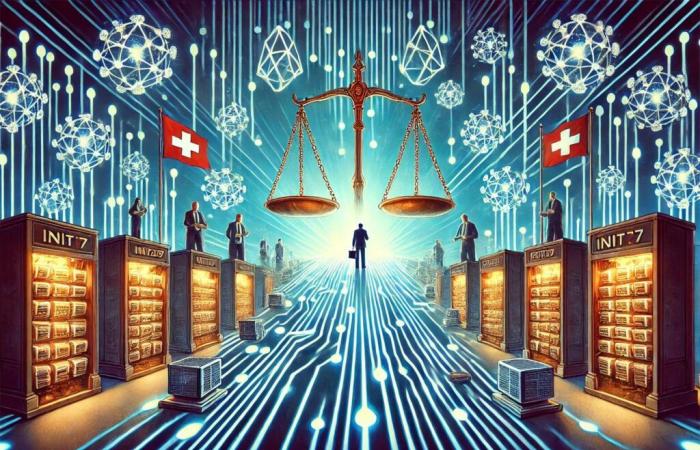Internet traffic continues to explode with the video boom. Even if the consumer already pays for their internet subscription, operators charge in certain circumstances for interconnection agreements with other companies when they believe they are disadvantaged by the quantity of data crossing their network. In this context, the small Init7 won a new battle against the giant Swisscom!
Peering is an interconnection agreement allowing two networks to directly exchange their data traffic, thereby avoiding costly and inefficient detours. The ComCom Communications Commission has just issued a potentially landmark decision by forcing Swisscom to establish a free peering agreement with Init7, putting an end to a legal battle that had lasted since 2013, according to the Init7 press release.
Made shortly before Christmas, this decision marks a turning point in the world of telecoms, because it would be the first time that a European regulator has ruled on this form of interconnection. Particularly complex, this file required two market studies from the Federal Office of Communications (OFCOM) and several expert opinions from the Competition Commission (COMCO) and an analysis from the Price Monitor.
The technical and economic context
Until now, Swisscom used the ratio between incoming and outgoing traffic as justification for charging content providers additional fees. ComCom considered this practice irrelevant, because the direction of data flow does not influence infrastructure costs.
The interconnection between networks is comparable to a road system where each operator manages its own routes and participates equitably at junction points. In this new framework, each partner supports its own infrastructure costs, limited to router ports and cables, according to the same text.
Anticompetitive practices revealed
The same source specifies that the investigation revealed an agreement between Swisscom and Deutsche Telekom, akin to a cartel, to impose payments on content providers. This practice allowed Swisscom to act as a gatekeeper, controlling access to its end customers and demanding payments for the distribution of content such as video streaming.
The decision is based on the ‘polluter pays principle’, establishing that costs are already covered by end customers’ broadband subscriptions, as stated in the introduction. This approach puts an end to unjustified double billing, always according to the same text, which could cause a lot of ink to be spilled!
Furthermore, ComCom now requires Swisscom to carry out cooperative upgrades as soon as 50% of the nominal capacity is reached, it is specified in the Init7 press release. This obligation will guarantee a better quality of service for all end users.
Little Init7 was right once again!
Although Swisscom can still appeal to the Federal Administrative Court, its chances of success appear limited, according to Init7. The same court had in fact already ruled in favor of Tom Thumb in April 2020, suggesting a probable confirmation of this new decision.
In any case, it is gratifying to see that small companies regularly overpower giants like Swisscom, who sometimes give the impression of being able to do what they want, as in the case of optical fiber. Init7’s fight is exemplary and shows how difficult (but necessary) it is in the business of making monsters bend.
Xavier Studer
ComCom’s decision on the Init7 website
I like this:
I like loading…
Learn more about Xavier Studer’s high-tech & telecom blog
Subscribe to get the latest posts sent to your email.






